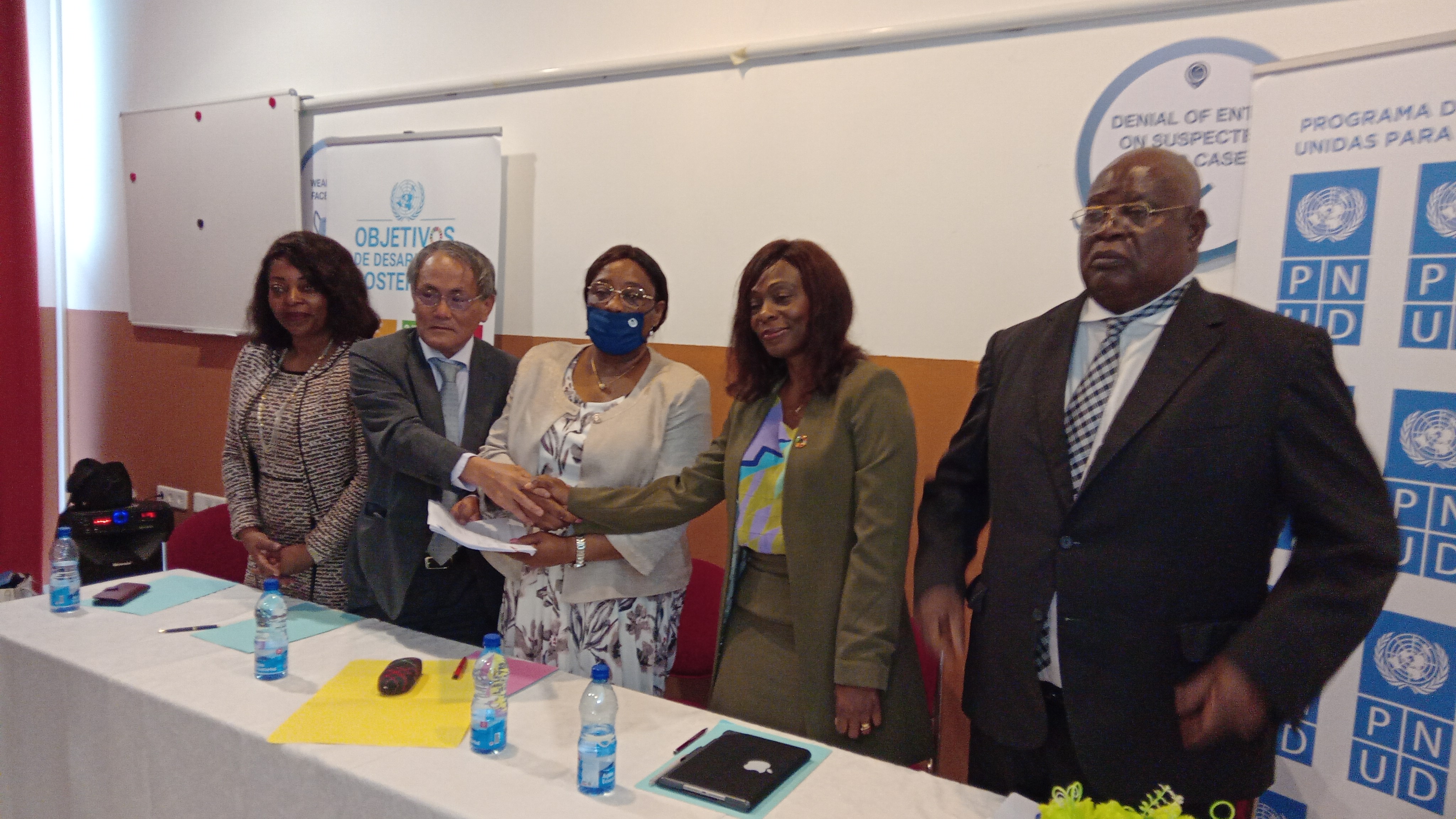Japan-led project addresses environmental concerns after explosions in Equatorial Guinea
January 4, 2023

A UNDP project supported by Japan in collaboration with the government aims to promote better environmental and waste management in the aftermath of the 2021 explosions
In Bata, Equatorial Guinea, a UNDP project supported by the Government of Japan in collaboration with the Ministry of Foreign Affairs, Ministry of Agriculture, Livestock, Forests and Environment, Ministry of Health and Social Well-being and the Ministry of Interior continues to address pressing environmental concerns and promote better environmental and waste management in the aftermath of a series of explosions that rocked the city in 2021.
On 7 March 2021, the city of Bata’s armory of the Nkuantoma gendarmerie and military barracks experienced a series of explosions which led to the collapse of military barracks near the site, resulting in further explosions and the spread of unexploded ordnances across the city. The explosion resulted in environmental hazards, especially from inadequate waste management.
In July 2022, the Equatorial Guinea project supported by the Japan Supplementary Budget was officially launched in the city of Bata. The launch was attended by dignitaries including H.E. Francisca Eneme Efua, Minister of Agriculture, Livestock, Forest, and Environment, and the Ambassador of Japan in Gabon H.E. Mr. Noguchi Shuji along with UNDP’s Resident Representative, Dr. Elsie Laurence Chounoune.
The project focuses on four key output areas: emergency rehabilitation of Bata’s waste treatment center; strengthened governance to support long-term and sustainable environment and waste management; capacity development for key stakeholders on environment and waste management matters; and sensitization and awareness-raising of the population on environmental best practices.
Considering that water, hygiene and sewage systems need to be part of the immediate humanitarian response following the explosions, the project’s key activities include a social and environmental safeguard assessment of the city’s waste treatment center and its rehabilitation. It will also help with assessing and planning environmental recycling guidelines. Under the supervision of the Ministry of Interior, the initiative also plans on carrying out capacity-building workshops on waste management across key stakeholders - including 150 staff of which 50 percent will be women- involved in environmental management-related matters.
To address the lack of sanitary waste management at the city’s hospitals, the project will also roll out capacity-building workshops to help 13 staff of the National Recycling Company improve their knowledge of hazardous waste, waste segregation, preparation of reports, collection of statistical data on waste, regular use of personal protective equipment during the handling of hospital chemicals and other bio-hazardous wastes.
Additionally, a communication strategy was also created for the various sectors involved in waste management. Cognizant of the unique needs and challenges of women and children, the project also implemented awareness campaigns in local communities that covered at least 60 percent of the city’s women and young people. The project will continue to support the improvement of waste management infrastructure and capacity building in Equatorial Guinea through the support of Japan.

 Locations
Locations


